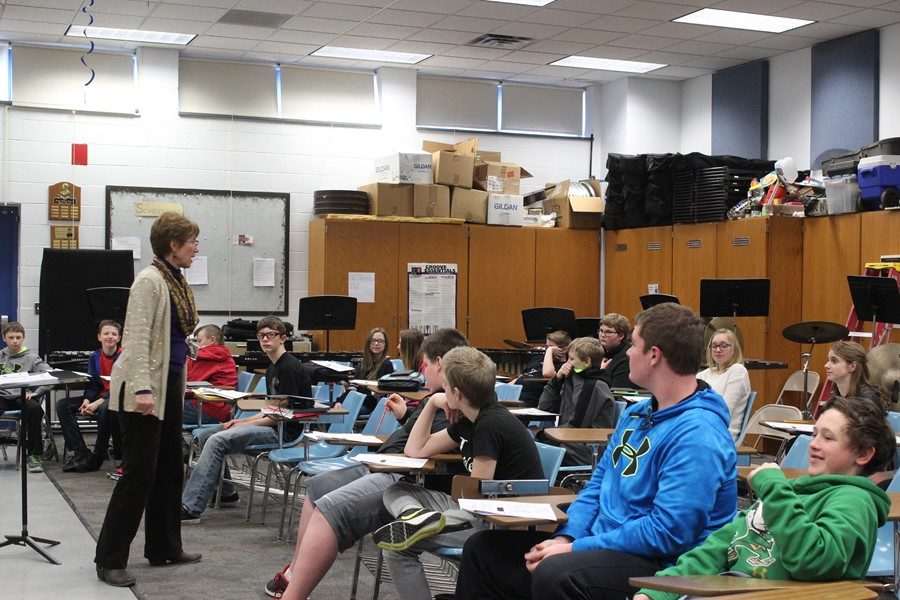Well worth the cost
High school music programs are often the first to go. Here’s the value they have to offer
Ms. Beth Hull instructs her middle school music students.
February 14, 2018
There is a multitude of evidence proving that music education is a benefit to young minds.
“A music student grows to be more intelligent over time through multitasking and right brain and left brain activities,” explained Bellwood-Antis and director Mr. Patrick Sachse. “A music student is able to read music, while watching a conductor, while listening to themselves, and listening to others around them, and can manipulate an instrument; this creates an incredible level of awareness and interactivity that many students do not develop.”
Ms. Beth Hull, the Bellwood-Antis choral director, cited some social benefits of music education.
“Musicians work together with others for a common goal and enjoy the intrinsic satisfaction of completing a task simply for the experience of a ‘job well done,’” she said.
However, when schools fall on hard times, music programs are often the first to go.
Could this ever happen at Bellwood? Music is a big part of student life in the district. Here, students are able to begin learning an instrument as young as fourth grade, and by the time they get to high school they can join marching band, jazz band, and concert band. Students can join chorus in middle school and high school. A musical is held every year which many students take part in, regardless of whether or not they’re in chorus.
Luckily, there are currently no plans to cut Bellwood-Antis music programs. But with funding for public schools declining, it could happen to anyone. For example, in the United States, 1.3 million elementary school students do not have access to music education.
“Music programs are cut mostly because of cost,” said Mr. Sachse. “A music department requires sheet music, instruments, and other equipment, which can quickly add up, surpassing the cost of a traditional classroom.
“Also, the state assessment structure only evaluates math, English, and science, so it’s a natural reaction for schools to prioritize funding those subjects over non-assessed,” he continued.
According to Mr. Sachse, the Bellwood-Antis music department has already been cut. Four years ago, it was downsized from having four to three staff members.
“We are thankfully in a community where both the public and the administration truly support the music department, and I have no concerns that our music staff would get any smaller,” he said. “But, I look forward to the day that we can enjoy a fourth music teacher and expand our programs again, and hopefully bring more opportunities back for the students.”
Mr. Sachse believes that we keep music in school for good reasons. He said, “A school music program is necessary so that ALL students have exposure and access to programs at the same time. Every student, regardless of socioeconomic status and family situation, benefits from music.” He also mentioned that an ensemble benefits from having a large number of students, which a school setting can provide.
One of the many purposes of high school is to allow students to explore their interests and learn new things, and music education is an important part of that. Music classes can also provide a much needed from a student’s academic classes. For these reasons, along with the physical, mental, and social benefits of learning music, we should do everything we can to keep music in schools.
“A lot of kids, they have nothing outside of school. And a lot of times, the band and the chorus, the performance groups—that is their life,” said Mr. Jim Rumbarger, who taught music in the Bellwood-Antis school district from 1980 to 1992.
“Quite literally, I had a student come up to me years after they graduated,” he reminisced. “They said, ‘You probably don’t know it, but when I was in the band, you guys probably saved my life.’”






